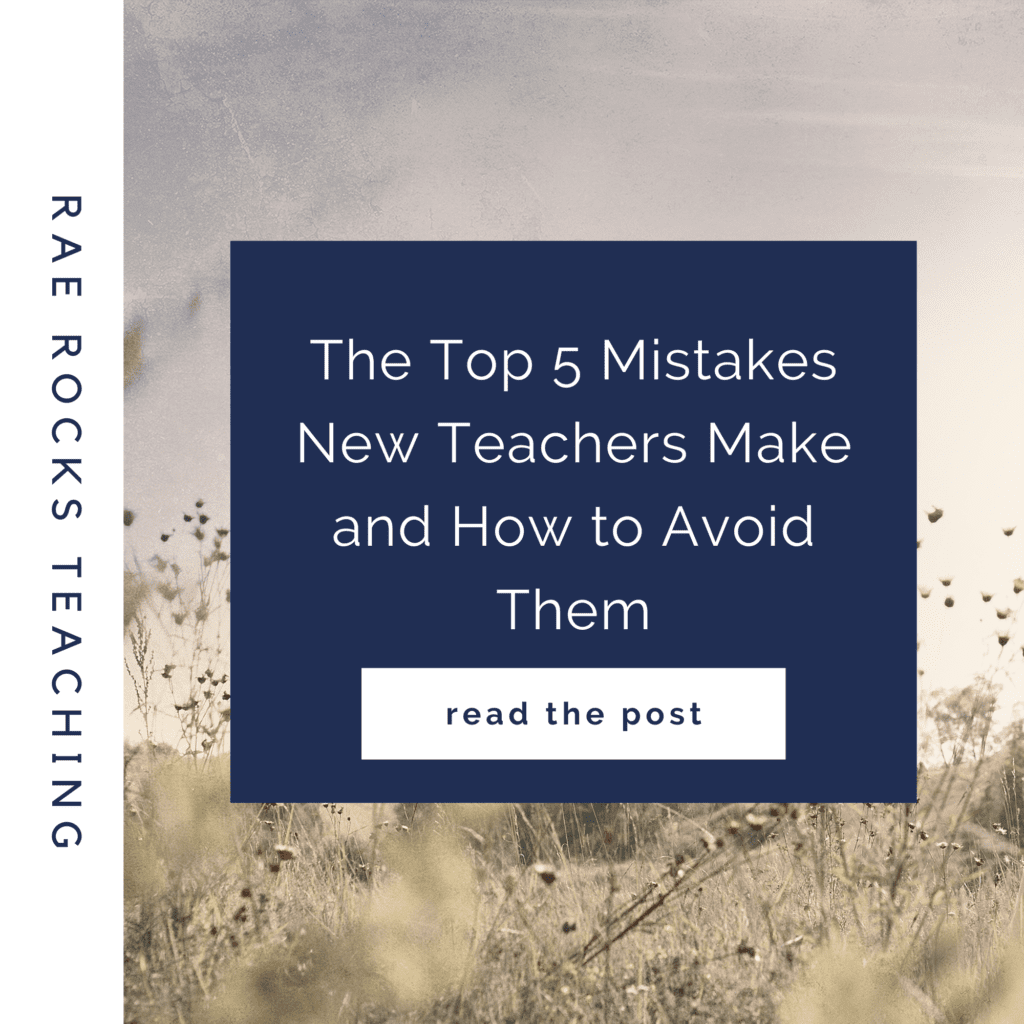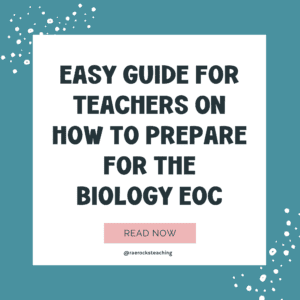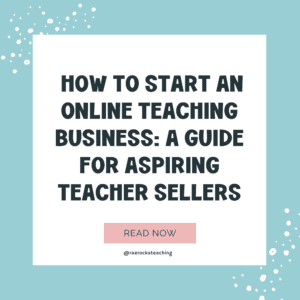Starting a new job is always challenging, but teaching comes with a unique set of obstacles. As a new teacher, you want to make sure you’re providing the best education possible to your students. However, many new teachers fall into common traps that can hinder their progress. In this article, we’ll explore some of the most prevalent mistakes new teachers make and provide actionable tips on how to avoid them. From burnout and neglecting self-care to failing to differentiate instruction and building relationships, we’ve got you covered. So, whether you’re a seasoned educator or just starting your teaching career, keep reading to learn how to set yourself up for success in the classroom.
Looking for more ways to improve your teaching and leading skills in the classroom?
Register for the Teaching with Confidence Cohort today!
Mistakes New Teachers Make – Over-Planning Can Lead To Burnout
Neglecting self-care can affect your teaching. While over-planning and pouring all your energy into teaching may seem like the right thing to do, it’s essential to take care of yourself. Spending all your time at school and neglecting your own needs can lead to burnout, which in turn will affect your teaching. If you’re not taking care of yourself, it’s hard to provide the best education possible to your students. This is the one of the most common mistakes new teachers make.

-
Save
Make sure to schedule time for yourself to recharge and relax. Engage in activities that you enjoy and that help you clear your mind and reduce stress. It’s also crucial to set boundaries and learn to say no to additional responsibilities that may take away from your well-being. Remember, taking care of yourself will leave you better equipped to provide your students with the education they deserve.,
Mistakes New Teachers Make – Neglecting Self-Care Can Affect Your Teaching
While focusing all your energy on teaching may seem like the best way to succeed as a new teacher, it’s important not to neglect self-care. Burnout can easily set in if you don’t take time for yourself to recharge and relax. This, in turn, can affect your teaching and ultimately, your students’ education.
To avoid this, make sure to schedule time for activities that you enjoy and help reduce stress. Setting boundaries and learning to say no to additional responsibilities that take away from your well-being is crucial. Remember that taking care of yourself is not selfish but necessary for your students’ success.

-
Save
Ignoring your own needs can lead to negative consequences in your teaching, such as not being able to build positive relationships with your students. Recognizing the importance of self-care sets you up for success in creating a positive and engaging classroom where your students can thrive.,
Mistakes New Teachers Make – Ignoring The Importance Of Building Relationships
Recognizing the importance of self-care is not only crucial for your own well-being but also for building positive relationships with your students. Ignoring the need to invest in relationships with your students can lead to negative consequences in your teaching. As a new teacher, it is easy to become consumed with lesson plans and grading, but taking the time to get to know your students can make a significant impact on their success in your class.
Building relationships with your students can be as simple as starting each class with a personal check-in or taking the time to have one-on-one conversations with each student. When students feel seen and heard, they are more likely to engage with the material and participate in classroom discussions. This engagement can lead to increased academic success and a more positive classroom environment.

-
Save
However, building relationships is not a one-size-fits-all approach. It is crucial to recognize and respect the diverse needs of your students.
Mistakes New Teachers Make – Failing To Differentiate Instruction To Meet All Students’ Needs
It’s no secret that students come from diverse backgrounds and have unique learning needs. Some may have learning disabilities, while others could be gifted and talented. Some may come from low-income families, while others may struggle with English language proficiency. Failing to differentiate instruction to meet all students’ needs can lead to learning gaps, disengagement, and ultimately, academic failure. Not having the skills to differentiate in the beginning of teaching is another common mistakes new teachers make.

-
Save
But what does it mean to differentiate instruction? It’s about tailoring your teaching methods and materials to meet the varying needs of your students. It could mean using visual aids or manipulatives for students who learn best through hands-on activities, providing extra support or simplified instructions for struggling students, or offering more challenging assignments for advanced learners.
By differentiating instruction, you are not only meeting the diverse needs of your students but also creating a classroom environment that is inclusive and welcoming. Students feel valued and respected when their unique needs are recognized and addressed, which leads to better engagement and academic success.
However, differentiation requires a lot of planning and preparation, which can be overwhelming for new teachers. Seeking advice and feedback from experienced colleagues can be helpful in designing effective lesson plans that meet the needs of all students. In the next section, we’ll explore the importance of seeking guidance and feedback from others in the teaching profession.,
Mistakes New Teachers Make – Not Seeking Advice and Feedback
Differentiated instruction can be an uphill battle for new teachers who find it challenging to tailor their lessons to the needs of each student. Asking for advice and feedback from experienced teachers can make a significant difference in designing effective and inclusive teaching plans. New teachers should welcome constructive criticism and seek mentorship to improve their strategies and classroom management skills.
In addition to seeking guidance from colleagues, new teachers can also benefit from attending workshops and professional development programs. The teaching profession is continuous learning, and educators must keep updating their knowledge and refining their teaching approach to be effective. Embracing a growth mindset and actively seeking feedback can lead to a more successful and fulfilling teaching career.
By avoiding common mistakes such as being too strict or not differentiating instruction, new teachers can set themselves up for a successful school year. Seeking feedback and guidance from experienced colleagues is essential for new teachers to improve their skills and create a classroom environment that is inclusive and engaging. With a willingness to learn and a growth mindset, new teachers can overcome challenges and make a lasting impact on their students.,
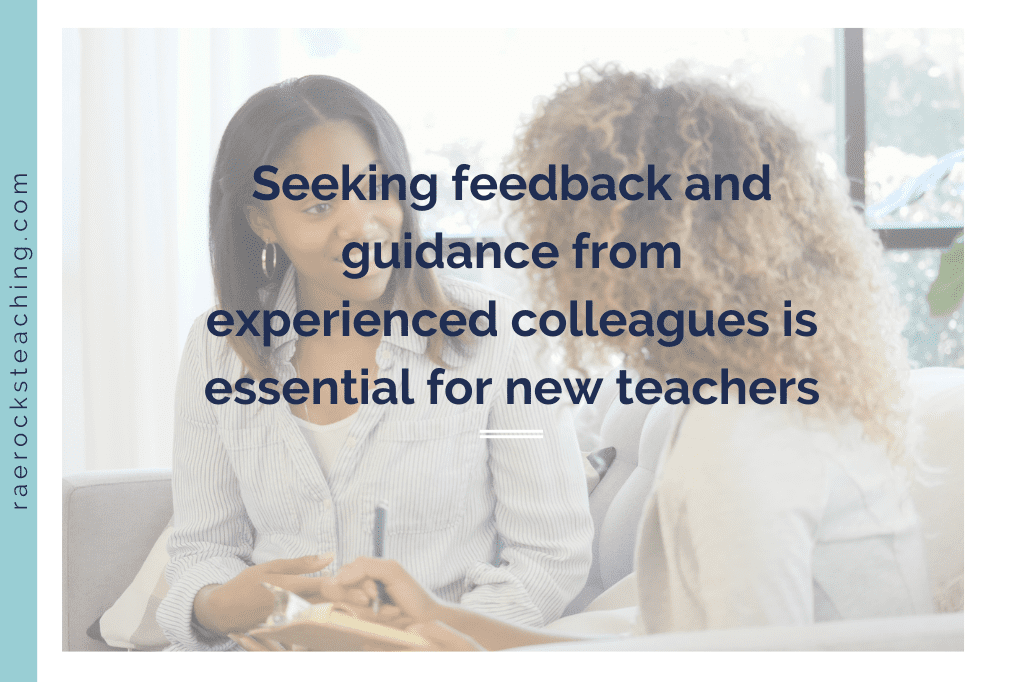
-
Save
Avoid These Common Mistakes For A Successful Year
By avoiding common mistakes such as being too strict or not differentiating instruction, new teachers can set themselves up for a successful school year. Seeking feedback and guidance from experienced colleagues is essential for new teachers to improve their skills and create a classroom environment that is inclusive and engaging.
However, the journey of a new teacher doesn’t end with just avoiding common mistakes. It is crucial to reflect on each day and evaluate how you can improve the next day. Remember, teaching is a continuous learning process, and it involves constantly refining and updating your knowledge and teaching approach.
As a new teacher, it is easy to get overwhelmed by the workload, but it is important to prioritize and stay organized. Make time for planning and preparation, and don’t hesitate to ask for help when needed.
As the great philosopher Aristotle once said, “Excellence is an art won by training and habituation. We do not act rightly because we have virtue or excellence, but we rather have those because we have acted rightly. We are what we repeatedly do. Excellence, then, is not an act but a habit.” Let’s make excellence a habit as we embark on this rewarding journey of teaching.
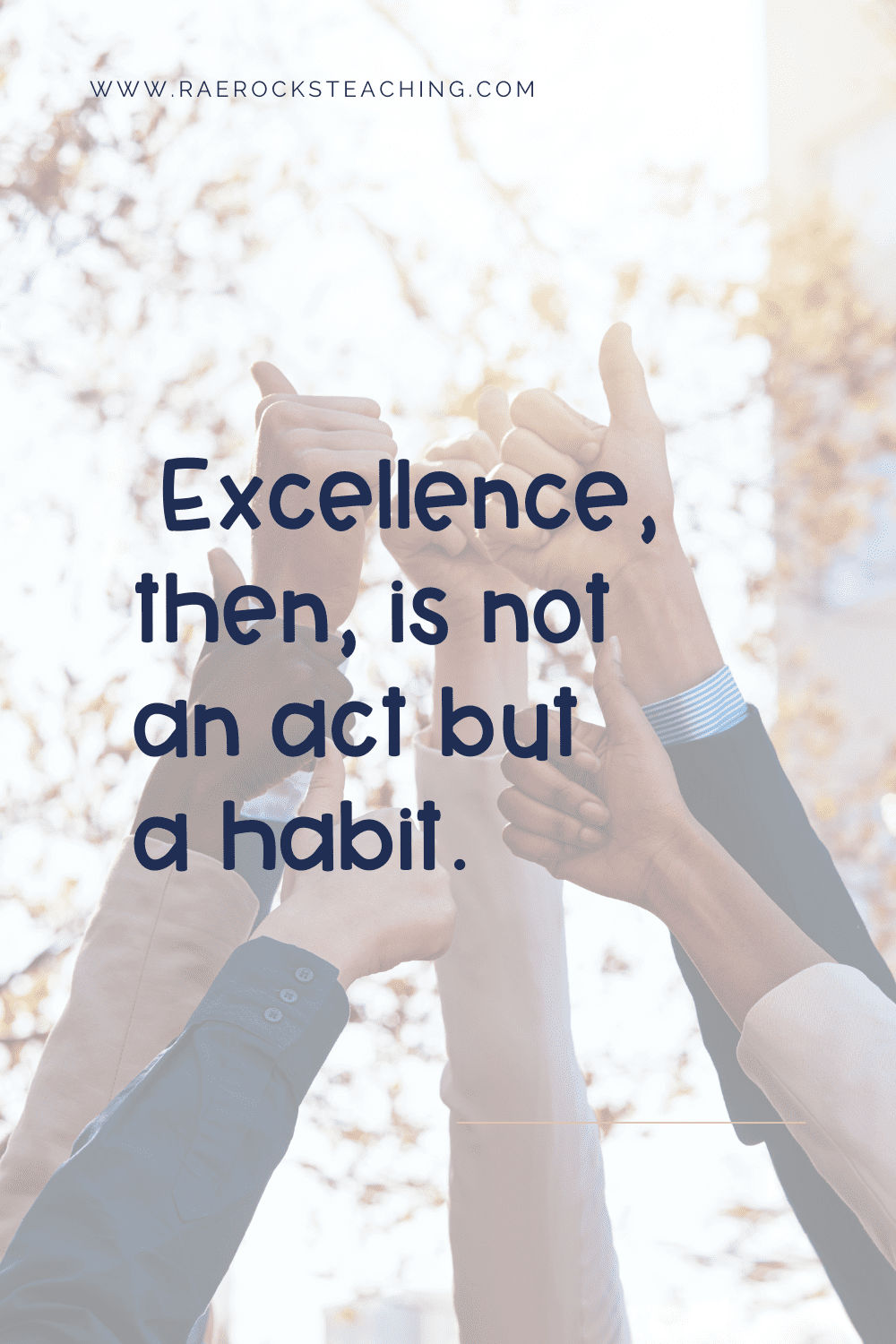
-
Save
Don’t forget to sign up for the Teaching With Confidence Cohort Waitlist!
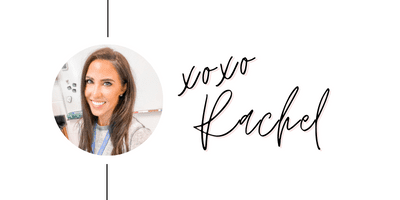
-
Save
I love sharing helpful content with y’all and would love to connect on IG or Facebook. I’m on TikTok too! Follow me and send me a DM with what you need more of because I’m here to help! If you are looking for even more inspiration, find me on Pinterest!
Wanna read more?
10 Things Your Lesson Plans for Biology Need
The 5 Most Powerful Activities for First Day of High School
Share via:

